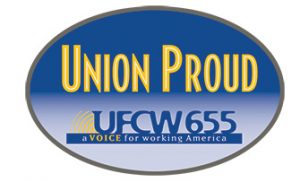Why Juneteenth Matters
 By DAVID A. COOK
By DAVID A. COOK
President
 By the time you read this we’ll be only days away from Juneteenth, the newest federal national holiday, signed into law by President Joe Biden. I’d be willing to bet that, like me, many of you reading this didn’t know much about this holiday until just the last few years, when more and more African-American activists and advocacy groups pushed for recognition of the day.
By the time you read this we’ll be only days away from Juneteenth, the newest federal national holiday, signed into law by President Joe Biden. I’d be willing to bet that, like me, many of you reading this didn’t know much about this holiday until just the last few years, when more and more African-American activists and advocacy groups pushed for recognition of the day.
It seems ridiculous that we didn’t have a holiday celebrating the emancipation of Black men and women from slavery. After all, slavery is without a doubt America’s greatest shame. Why shouldn’t we celebrate bringing such evil to an end?
Too many people in this country were dismissive of this holiday when it first entered the public discourse. These people seemed to think it was some kind meaningless token that should simply be ignored. I can only imagine if I were a Black person in this country I would be very disgusted that this would even be a debate. Think about it; think about you being owned by another person simply because of the color of your skin you were born with.
The sin of slavery still hangs over our heads and perhaps it always will. It’s true, there is no living person today in America that owned slaves. So where no one here today is guilty of this atrocity, guilt is not the same as responsibility and we all have a responsibility to accept that what happened was wrong and commit that we will all work to correct any lingering effects.
When I became president of Local 655, I was not responsible for many of the decisions that placed us where we were in that moment. I hadn’t chosen when and how to spend the partner’s dues money, I hadn’t made many of the decisions that were wrong in this organization’s early days — such as contracts that had different pay rates for men and woman that were doing the same job. So I don’t have guilt for those decisions, but I have a responsibility to make sure we always strive to treat all my partners equally. Those of us living in this country today aren’t guilty of the sins of the past. But we do have a responsibility in making sure those sins do not continue to hinder our future.
Acknowledgement is the best place to start.
We know that the ill effects of racism and slavery didn’t simply vanish the moment that last chains were broken. Jim Crow laws and deep racial hatred found in the hearts of too many Americans kept Black Americans from the ballot box, the lunch counter, the boardroom, and more. In fact, union membership was denied to Black men to make sure they could not make equal wages to their white counterparts and was done with the introduction of phony “right-to-work (for less)” laws. Pretending we don’t have that history would be like having a friend or family member that once caused you great pain and now simply saying it’s your fault for dwelling on it.
“Move on” or “it was so long ago” or “can’t you get over it” is not something you say to a person you care about. You express empathy and own the responsibility you have to make things different. Not a single person can fix every problem America has with its continued racial disparities, but we can at least start by acknowledging that they exist.
Racism still exists. If you don’t believe me, look to the news photos of the weekend rally in Florida where dozens of men gathered outside of Disney World waving actual Nazi flags. This doesn’t mean every white person is bad, and it doesn’t mean that every Black American is a victim. It simply means that, unfortunately, evil is still out there.
If we can’t agree to celebrate the end of human slavery in America, what on Earth can we agree on? Anyone who tries to dismiss racial equality in America is either willfully blind or, more than likely, sadly uneducated on the issue.
How many Americans have never even heard of the Tulsa Massacre, where white people firebombed Black-owned businesses in a thriving Black neighborhood in Tulsa? Bombs were dropped, right here on American soil, on Black neighborhoods that day. Black people were killed in the street, and there were virtually no criminal convictions of the perpetrators.
I’m sad to say my own education did not ever cover this day, and I was well into life before I’d ever even heard of it.
Would you be surprised to learn that the lynching of a Black man by members of the KKK is not some distant incident that no one alive can remember? In 1981 Michael Donald, a Black man, was beaten to death and hung from a tree by members of the KKK. This was 1981, just 42 years ago.
I’m not saying all of this to declare that America is irredeemably racist or broken. I’m not saying this because I believe America is a terrible place filled with terrible people. In fact, I believe for all our flaws America is by far the best country in the world and I am definitely proud to be an American! I’m saying this because there’s work to be done and unions are one place where that work can actually be accomplished.
Labor’s hands are not clean on issues of racial discrimination. Many Labor organizations at one time or another excluded people of color from their ranks, which meant that those good union benefits and were never available to Black working people.
Eventually though, Organized Labor became one of the most critical tools in the fight for civil rights in the United States.
You probably know that Dr. Martin Luther King Jr. was a vocal advocate in favor of Labor unions because he saw them as an ideal vehicle to help working Black people get access to higher quality jobs and build their wealth for the next generation.
Organizations like ours can advocate for laws and policies that treat all human beings as human beings. We can provide support and resources for people of color and the organizations that fight for them. We can do what I mentioned earlier and acknowledge history, acknowledge where we are, and try to push for the better world we all want.


One Comment
Your editorial is an excellent piece of writing. It was informative, well-argued, engaging and acknowledges the gains as well as the opportunities to be had. I highly recommend it to anyone who is interested in the role of union and Juneteenth.